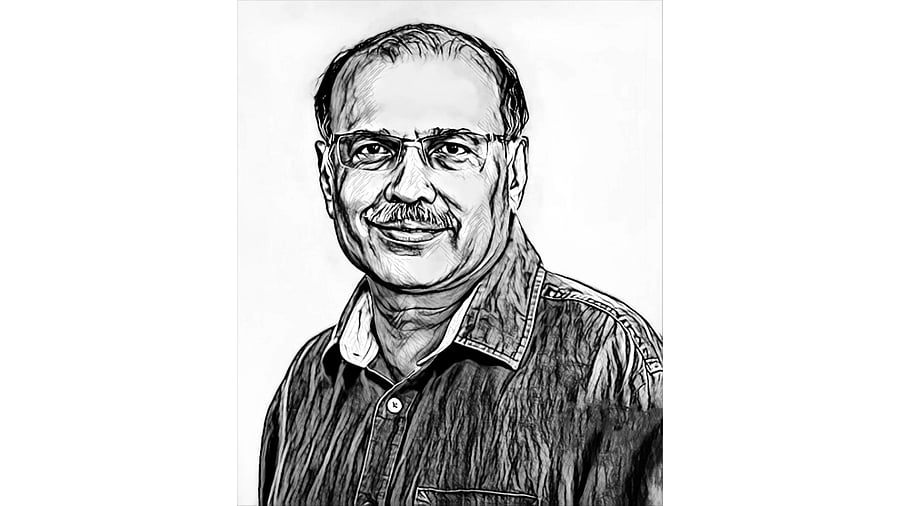
Capt G R Gopinath (Retd.) builds bridges, sometimes by tearing down walls. He is a soldier, farmer, and entrepreneur
Recently, a trainee pilot lodged a police complaint in Bengaluru against seniors who insulted him with a casteist remark – “not fit to fly a plane, stitch shoes instead”.
I was reminded of a young pilot in Air Deccan, from a backward caste, who was avoided as a co-pilot by senior captains, because he couldn’t speak English well and did not possess “gracious” manners. Equality Labs has reported discrimination against Dalits in big tech companies in the US and the firms’ failure to implement corrective measures.
These are times that remind us, increasingly, how caste is entrenched in society, more tellingly in our political discourse. In Karnataka, the unreleased findings of a completed caste census and the components of a newly announced survey continue to influence political stakes. The BJP at the Centre has announced an enumeration of caste denominations, after stonewalling it for years, with an eye on the forthcoming state elections starting with Bihar. India’s claimed socio-economic progress has failed to erase its long, troubling history of caste prejudice and injustice. We are, still, a country of ‘honour killings’; we still deny Dalits access to community wells; bigoted mobs still deliver swift vigilante ‘justice’.
My train of thought led me to Adalu badalada prethagalu (Mixed up souls), a Kannada short story by renowned writer Gorur Ramaswamy Iyengar, where he, through biting humour, exposes upper-caste hypocrisies. This is about Vedamurthy, a Sanskrit scholar and an orthodox Shri Vaishnavite, who visits his son employed in Pune. Vedamurthy, never to compromise on his daily rituals and pujas, hasn’t travelled outside his village or eaten anywhere unless the food was cooked from a well or river water – tap water, to him, is rendered impure by others’ touch. Giving in to his son’s persuasion and convinced by the assurance that food would be cooked by his daughter-in-law with water from a well, Vedamurthy decides to take the trip. He is accompanied by Raghavan, his late wife’s younger brother, an atheist.
The cooking goes well with the help of Raghavan, who knows Vedamurthy’s tastes. The scholar is happy with his son and family, while the mantras and rituals continue without a break. After a month, Vedamurthy complains of severe pain in his mouth and is subsequently diagnosed with cancer. He protests against treatment with Western medicine but is eventually hospitalised. One day, a stocky man stops near Vedamurthy’s room – he is Varadappa, a Dalit man from the same village, visiting his mechanic son in Pune. He is in the hospital for treatment of stomach ulcers. Vedamurthy jokes to a prostrating Varadappa: “Please rise. There are no gurus or shishyas here. We are all patients.” Varadappa disagrees and notes that Vedamurthy and his forefathers have been his family priests for generations.
Vedamurthy’s condition deteriorates, and his other sons are called in. Varadappa doesn’t survive his operation and dies. Hearing the news, Vedamurthy says, “He was good and pure. Heaven’s doors are open for him.” Raghavan asks, in jest, how Varadappa can be in heaven without the full rites and rituals as enunciated in the scriptures. Vedamurthy isn’t amused; he explains that while he would indeed require all the rituals for his passage to heaven, Varadappa does not need them. That night, Vedamurthy is restless. His son gives him water from the Ganga. The man passes away at sunrise.
The next day, the sons, accompanied by the priests, take Vedamurthy’s body for cremation at the Harishchandra Ghat. Raghavan notices Varadappa’s family leaving after cremating his body. Lengthy funeral rituals are performed for Vedamurthy, befitting a learned orthodox scholar, coincidentally adjacent to Varadappa’s cremation platform. A day later, the sons are at the ghat again to collect the ashes. Varadappa’s family has already collected his ashes, washed and swept the platform, decorated it with a rangoli, and left.
The homa fire is lit, and the mantras resume. As the sons repeat after the priest – “Let the preta (soul) trapped be released from karmic rebirths and join the heavens”, Raghavan realises in utter shock that the sons have mistakenly collected Varadappa’s ashes. The invocation for moksha is for Varadappa’s, and not the high priest’s, preta. Varadappa’s family, meanwhile, has left the town with Vedamurthy’s remains.
Raghavan wonders – but then, what difference does it make? After the bodies are burnt, aren’t the souls bound to mingle in the five elements – the panchabhootas – as the Upanishads say? Can the preta have a caste? Raghavan imagines Varadappa and Vedamurthy in heaven – two departed souls having a good chuckle over earthly quibbles.